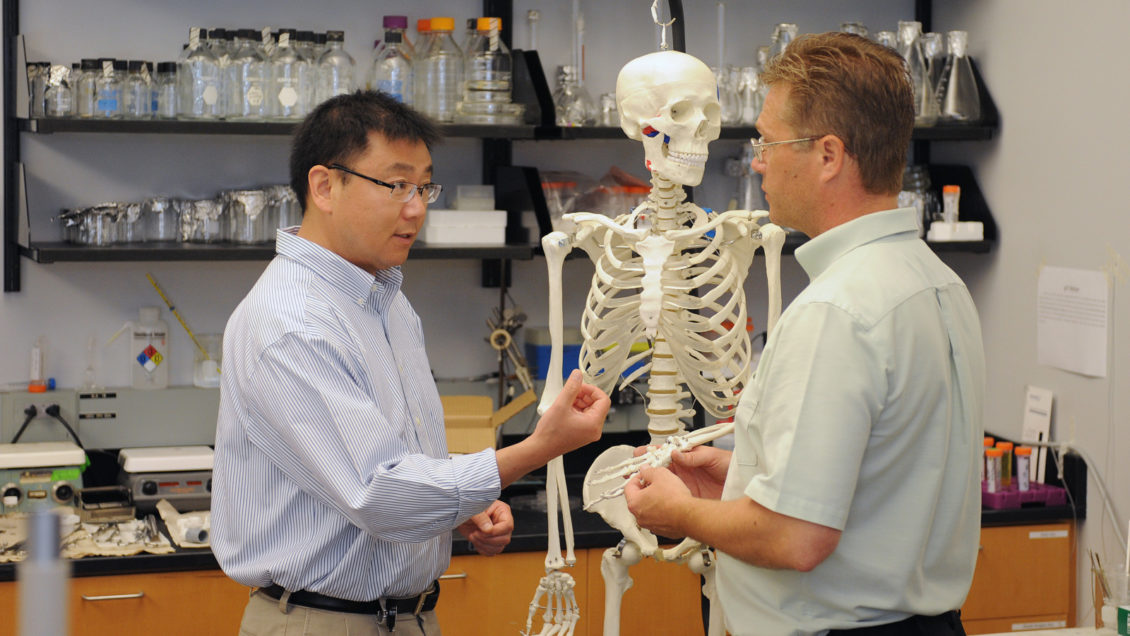A Clemson University researcher has received funding to develop a novel technique to correct spinal deformities without anchoring rods to the spine with screws.
Hai Yao, the Ernest R. Norville Endowed Chair and Professor in the Department of Bioengineering and one of six faculty members in the Clemson University-Medical University of South Carolina (MUSC) Joint Bioengineering Program, has been awarded $40,000 from the National Institutes of Health (NIH) to advance his research on spinal deformities.
“Spinal deformity, an abnormal curvature of the spine, affects a substantial number of patients around the world,” Yao said. “Surgical treatment usually involves implanting rods to straighten the spine; however, complication rates are extremely high.”
Yao ‘s research is focused on combatting the challenges associated with improving spinal deformities.
“My lab is developing a novel surgical system for correcting spinal deformities without anchoring rods to the spine with screws,” he said. “With this new approach, which we have called the R-FIXation system, rods will be anchored to the ribs using a series of hooks instead of to the spine.”
According to Yao, this technology is a paradigm shift in approaching spinal deformity with a new focus on the thorax as the primary structure for manipulation to secondarily reposition the spine, rather than solely focusing on the spine itself.
Yao is one of seven researchers to receive funding through the XLerator Network’s “Ideas to Products” (I2P) program that seeks to accelerate the commercialization of healthcare technologies across the southeast Regional Technology Transfer hub—a virtual hub comprised of 24 institutional partners. XLerateHealth (XLH) and its affiliate, the Southeast XLerator Network (XLN), recently announced that NIH will provide proof-of-concept funding for the continued development of a number of biomedical innovations that represent various sectors of technology, from medical devices, to diagnostics and therapeutics. The XLN received 55 proposals, scoring them based on a number of criteria, with a total amount of $200,000 available for this round of funding.
“I am honored to have been one of seven innovators to receive an I2P award,” said Yao. “The funding will allow me to further develop the R-FIXation system to provide safer, more effective, and versatile spine correction in patients with spinal deformities.”
END
About the XLerator Network
The XLerator Network (XLN), funded by the National Institute of General Medical Sciences (UT2GM130174), is a partnership between XLerateHealth, a startup accelerator based out of Louisville, KY, and 24 Academic Institutions with the University of Kentucky serving as academic lead. Founded in 2018, the XLN was created to support the commercialization of innovative life science and healthcare technologies in the Southeast Institutional Development Award (IDeA) states, including Kentucky, Arkansas, Louisiana, Mississippi, South Carolina, West Virginia, and Puerto Rico. The goal of the IDeA program is to broaden the geographic distribution of NIH funding to help accelerate early-stage biomedical technologies.
Get in touch and we will connect you with the author or another expert.
Or email us at news@clemson.edu

